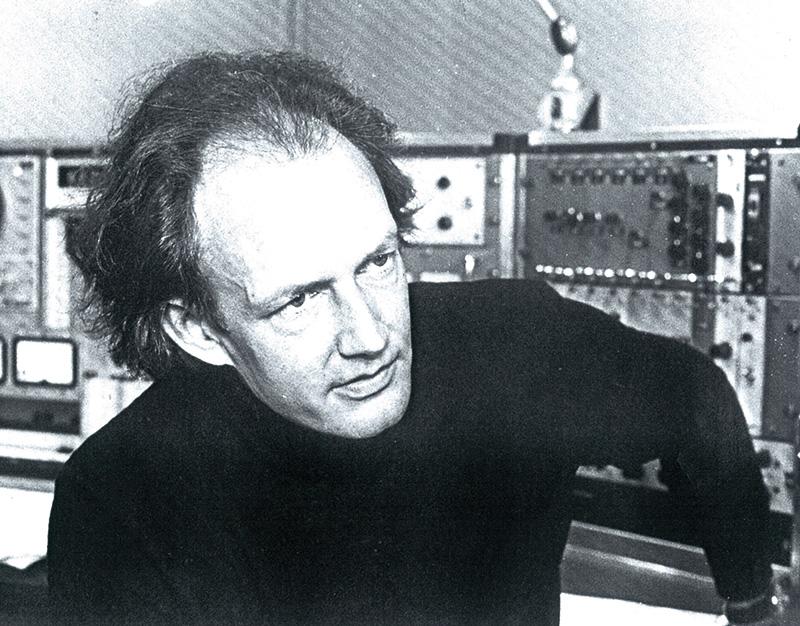Sonic Genealogies
Scanner (Robin Rimbaud) on Roland Kayn
The aim of the Sonic Genealogies series is to listen to the work of some of the most eminent figures in experimental music and sound art in the 20th century. However, it seeks to do so in a unique way: through the ears and voices of those artists who have retaken certain aspects of its sound legacy and melded them in some way into their own creations. Consequently, the idea is to put into practice this beautiful idea of “sharing listening” which Peter Szendy puts forward in the pages of his book Listen: A History of our Ears.
In each episode in the series, a different artist will “lend their listening” to engage us with it. The ideas and reflections of the artists interviewed, mixed with fragments taken from the sound world of the leading artists in each podcast, will reveal how the ideas and sounds of their predecessors “endure” or “resound” in their own work. Through the idea of “borrowed listening” they track, in part at least, their sound genealogies.
Some of the leading musicians and composers from the Sonic Genealogies series are still working today, while only the work of others involved remains: the forever living echo in their work and their understanding of sound. Moreover, many of the artists lending their ears and voices have collaborated, at some point, with the figures they will be discussing, and in these instances genealogy does not seem to run along one line or in one sole direction, but instead appears submerged in a kind of resonance between two generations. Listening to this resonance is the aim of this series.
Roland Kayn was born in Germany in 1933 and started composing at an early age. He won first prize at the festival of 20th century music in Karuizawa, Japan. Performances of his composition Aggregate (1959) resulted in him becoming persona non grata on the concert stage. Shortly after working in electronic studios in Poland, Germany and Italy, he joined the Gruppo Nuova Consonanza and this crucial detour into improvisation with Franco Evangelisti, Aldo Clementi and Ennio Morricone helped him find his definitive musical direction. Kayn decided to pursue his musical quest through composition with the intention, strange as it may seem, of excluding the composer as much as possible. He concentrated solely on electronic and electro-acoustic music from 1970 onwards.
Scanner (Robin Rimbaud) is a British artist who has been intensely active in sonic art, producing concerts, installations and recordings since the 1980s, connecting a bewilderingly diverse array of genres. Traversing the experimental terrain between sound, space and image, his adventures are brilliantly strange – from scoring 1000 dancers in Trafalgar Square, London, for the Olympics, creating permanent soundtracks in a London house, Riga Airport and a working morgue in Paris, to scoring the world’s first VR ballet with the Dutch National Ballet.
Arnau Horta holds a PhD in philosophy and he is an independent curator and researcher specialised in the sphere of contemporary sound creation. He has collaborated with MACBA, the Loop Festival, Sónar, Caixafòrum, the Barcelona Centre for Contemporary Culture (CCCB), the Catalonia Film Institute and La Casa Encendida, among other centres and cultural initiatives. As a teacher and spokesperson he has worked with the Autonomous University of Barcelona, the University of Barcelona, the Institut d'Humanitats of Barcelona and with the IED and ESDI schools, and is a collaborator in "Cultura/s" (La Vanguardia), "Babelia" (El País) and Ahora Semanal. He is currently working on his PhD in philosophy.

Roland Kayn. Courtesy of Ilse Kayn
Share
- Date:
- 11/02/2025
- Production:
- Arnau Horta
- License:
- Creative Commons by-nc-nd 4.0
Audio quotes
- Roland Kayn. “Genesis” from The Art of Sound. Reiger-records-reeks (2022)